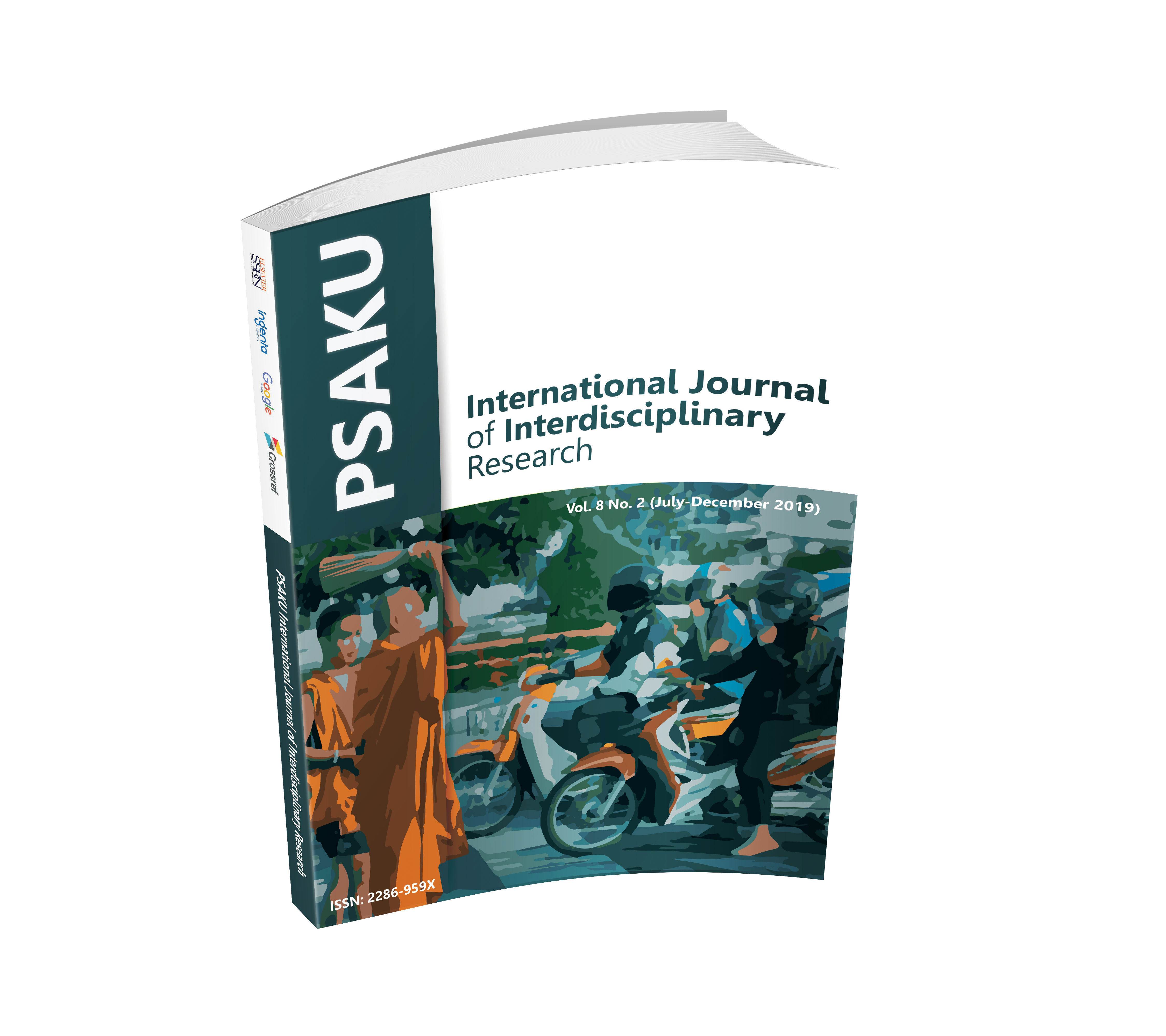The Influences of Parental Academic Involvement on Procrastination Behavior among Thai Adolescents in Bangkok Metropolitan Area
Keywords:
Perceived Parental Academic Involvement, Self-Regulated Learning, Self- Efficacy of Self-Regulated Learning, Procrastination, AdolescentsAbstract
This study aimed to examine the influence of the perception of parents’ academic involvement on academic procrastination among Thai adolescents in Bangkok metropolitan area. Particularly, this study investigated whether: ( a) perceived parental academic involvement ( either support or control) predicts adolescents’ academic procrastination, and ( b) whether self-efficacy for self-regulated learning ( SE-SRL) and self-regulated learning ( SRL) mediate the relation between parental academic procrastination. Participants were adolescents, aged between 15-18 years old, who have been studying in high schools and vocational schools in the Bangkok metropolitan area. Two-hundred ninety-five participants were recruited by using convenience sampling technique. Only participants, who gave consent forms, would participate in this study. All participants were asked to complete the Academic Procrastination Scale-Short Form ( APS-Short Form: Yockey, 2016) , Perceived Parental Academic Involvement (Janta, Jaikam, and Atipornpanich, 2018a), Self-Efficacy for Self-Regulated Learning Scale (Uscher & Pajares, 2008), and Self-Regulated Learning Scale ( Wongkongdetcha, 2004) . Parceling techniques were employed to provide a valid representation of target latent variables. Structural Equation Model (SEM) using lavaan was then analyzed mediation variables. We found that SE-SRL and SRL partially mediate the relation between parental academic involvement and academic procrastination. That is, when perceived parental support and parental control increases SE-SRL and SRL, and consequently, the academic procrastination decreases. However, explained by direct effect, if parental procrastination increases, academic procrastination increases. The direct effect of parental control is stronger than the indirect effect, so the total effect of parental control indicates positive effect on academic procrastination.
Downloads












.png)


